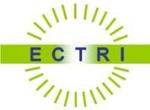The project aims to provide a better understanding of the nature of urban mobility challenges cities are facing, through advanced data modelling methods.
Through co-creation activities and innovative digital tools the AMIGOS project will identify present and future mobility challenges facing 5 cities (LLs) and 10 urban areas (SIAs).
The project will investigate and identify which inclusive, safe, affordable and sustainable urban mobility solutions can be developed together with key stakeholders, such as public authorities and vulnerable users. The project will co-develop and test technological and policy solutions as means of increasing public transport usage, zero-emission and active mobility modes, as well as improving safety and co-habitation between different mobilities. Researcher will assess the environmental, safety, economic and social effects, in addition to their medium- and long-term impact and their replicability, in view of their implementation in the 5 TCs.
Main objective
Provide a better understanding of urban mobility challenges cities are facing through advanced data modelling Methods
- Develop and test an inclusive co-creation methodology for designing sustainable urban mobility solutions involving urban stakeholders, especially VRUs
- Optimize public transport usage and create incentives for active mobility modes in 5 living labs to cut emissions
- Rebalance public space according to stakeholder’s needs through space optimization in 5 living labs and 10 SIAs
- Improve co-habitation between different mobilities in 5 living labs
- Improve safety and the quality of life of citizens, especially vulnerable groups in 10 SIAs
- Assess the effectiveness of the developed inclusive, safe and resilient innovative urban mobility solutions and install capacity-building measures
- Demonstrate the replicability of active urban mobility solutions in 5 TCs and install capacity-building measures
Ambitions
- Development of sustainable urban active mobility solutions through innovative inclusive co-creation methods
- Use of 3 comprehensive large scale digital twin models for solution identification and impact evaluation
- Use of a Big data platform
- Reducing traffic, increasing public transport usage and active mobility through innovative policies and technological solutions
- Improving the cohabitation between different mobilities through innovative policies and technological Solutions
- Public space optimization
- Improving safety through innovative policies and technological solutions
TØI is responsible for WP1 of 7 Data collection and involvement, and will carry out analysis of stakeholders and data harvesting.
This project has received funding from the European Union’s Horizon Europe research and innovation programme under grant agreement No.101104268.
More information about the project
Project period: June 2023 to June 2027.







